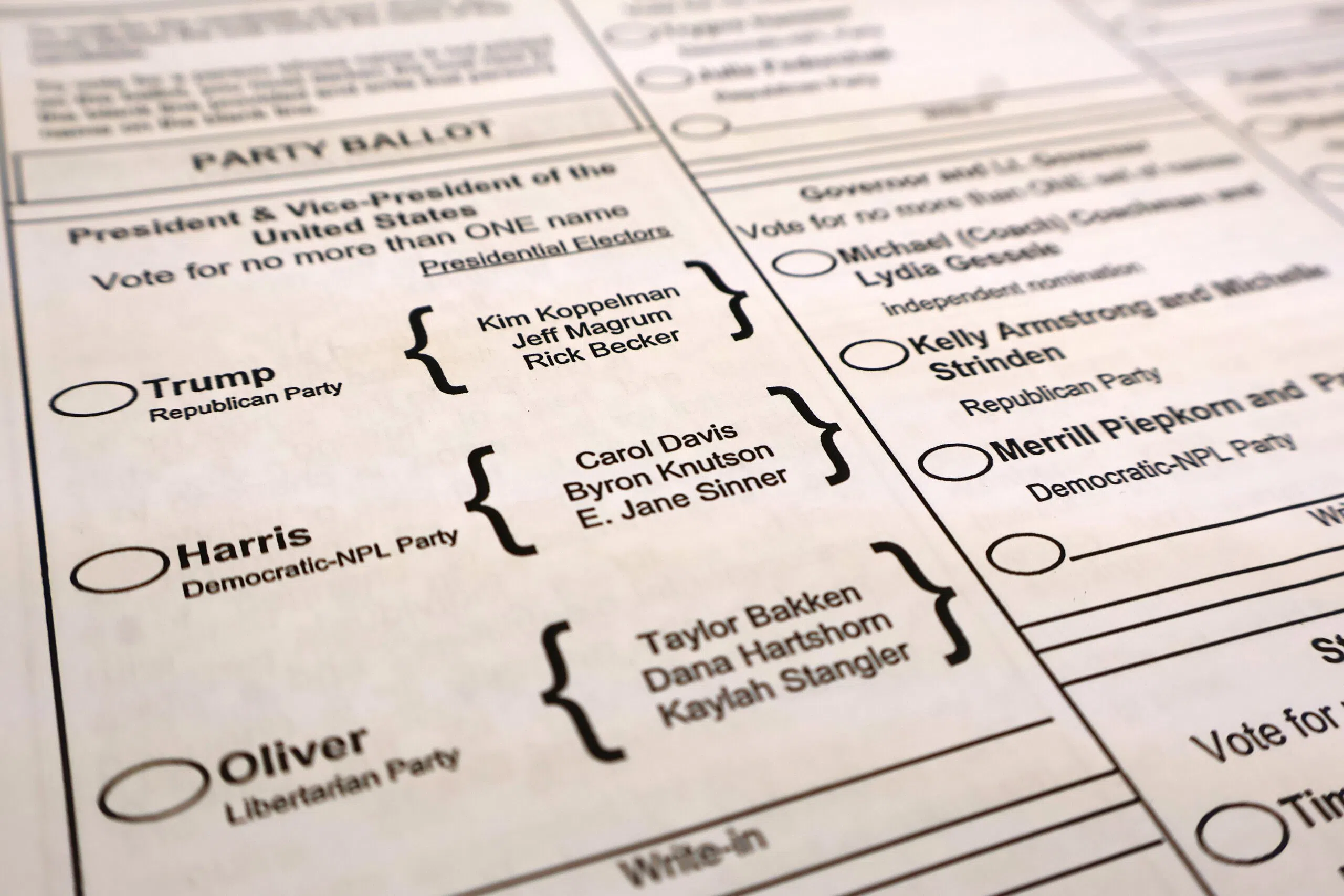By: Michael Achterling
BISMARCK, N.D. (North Dakota Monitor) – When North Dakotans cast ballots during the presidential race, they are not voting for their chosen candidate directly. Instead, they are voting for the three names next to their chosen candidate – the presidential electors.
In North Dakota, state political parties typically nominate electors during their state conventions.
North Dakota’s Republican Party selected state Sen. Jeff Margrum and former state lawmakers Kim Koppelman and Rick Becker as electors for the 2024 election.
Electors for the Democratic-NPL Party are Carol Davis, a former vice president of Turtle Mountain Community College; Byron Knutson, a former state insurance and state labor commissioner; and E. Jane Sinner, wife of the late Gov. George Sinner.
The Libertarian Party also is on the presidential ballot and has three electors who appear on the ballot.
Erika White, elections director for the Secretary of State’s Office, said the presidential electors are bound by state law to vote for their party’s pledged presidential candidate.
On Dec. 11, Gov. Doug Burgum will sign a Certificate of Ascertainment to officially appoint the state’s presidential electors based on the official election results certified by the state’s canvassing board.
North Dakota’s electors will meet Dec. 17 at the state Capitol to award the state’s three electoral votes.
Each state’s total of electoral votes is determined by its number of members in the U.S. House of Representatives and its two senators.
Those votes are then counted in Washington during a joint session of Congress on Jan. 6.
Eric Burin, history professor at the University of North Dakota, said the Electoral College system was created as a compromise between those who wanted the results of the national popular vote to select the president and those who wanted the president selected by federal or state lawmakers.
“The politically optimal solution was to require neither and permit both,” Burin said.
During North Dakota’s 2021 legislative session, lawmakers passed a bill opposing the National Popular Vote Interstate Compact. The agreement signed by 17 states and the District of Columbia would award a state’s electoral votes to the winner of the national popular vote. North Dakota’s legislation also urged Congress to oppose any measure that would change how electoral votes are distributed without an amendment to the U.S. Constitution.










Comments